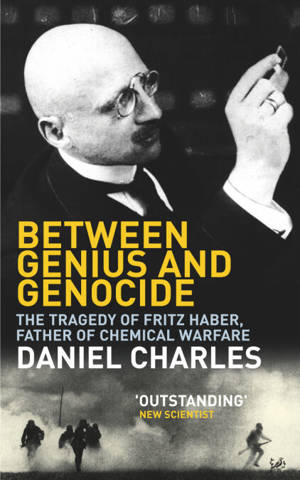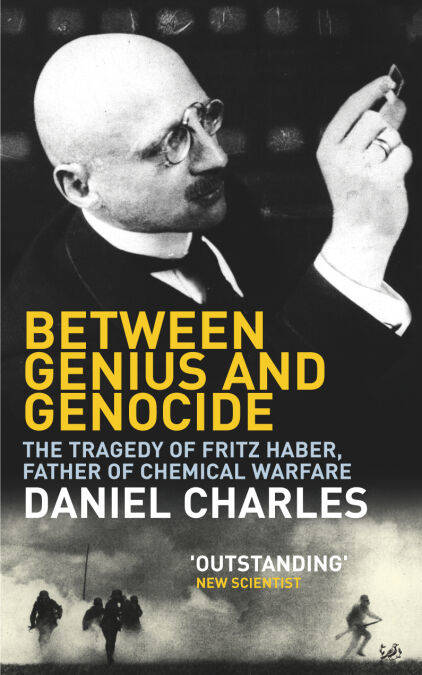
- Afhalen na 1 uur in een winkel met voorraad
- In januari gratis thuislevering in België
- Ruim aanbod met 7 miljoen producten
- Afhalen na 1 uur in een winkel met voorraad
- In januari gratis thuislevering in België
- Ruim aanbod met 7 miljoen producten
Between Genius And Genocide E-BOOK
The Tragedy of Fritz Haber, Father of Chemical Warfare
Daniel CharlesOmschrijving
In January 1934, as Hitler's shadow began to fall across Europe, a short, bald man carrying a German passport arrived at the Hotel Euler in Basle. He seemed haunted and restless, as though he urgently needed to be elsewhere.
Fritz Haber, Nobel laureate in chemistry, confidante of Albert Einstein and German war hero, had arrived in Basle a broken man and, three days later, he died leaving an uncertain legacy. For some, the great German chemist was a benefactor of humanity, winner of a Nobel prize for inventing a way to nourish farmers' fields with nitrogen captured from the air. For others, he was a war criminal who personally supervised the unleashing of chlorine clouds against British, French and Canadian troops in World War I.
Tragedy marked his life. A week after the first gas attack in 1915, Haber's wife took his pistol and shot herself. And in 1933, when Hitler came to power, 'the Jew Haber' was among the first scientists driven out of Germany. Within a year, Haber was dead - denied honour both in his homeland and abroad.
No life reveals the moral paradox of science - its capacity to create and destroy - more clearly than Fritz Haber's. Between Genius and Genocide is a story filled with ambition, patriotism, hubris and tragedy, set amidst huge technological advances, arms races, mounting imperialism and war.
Specificaties
Betrokkenen
- Auteur(s):
- Uitgeverij:
Inhoud
- Taal:
- Engels
Eigenschappen
- Productcode (EAN):
- 9781446468845
- Verschijningsdatum:
- 30/03/2011
- Uitvoering:
- E-book
- Beveiligd met:
- Adobe DRM
- Formaat:
- ePub

Alleen bij Standaard Boekhandel
Beoordelingen
We publiceren alleen reviews die voldoen aan de voorwaarden voor reviews. Bekijk onze voorwaarden voor reviews.









